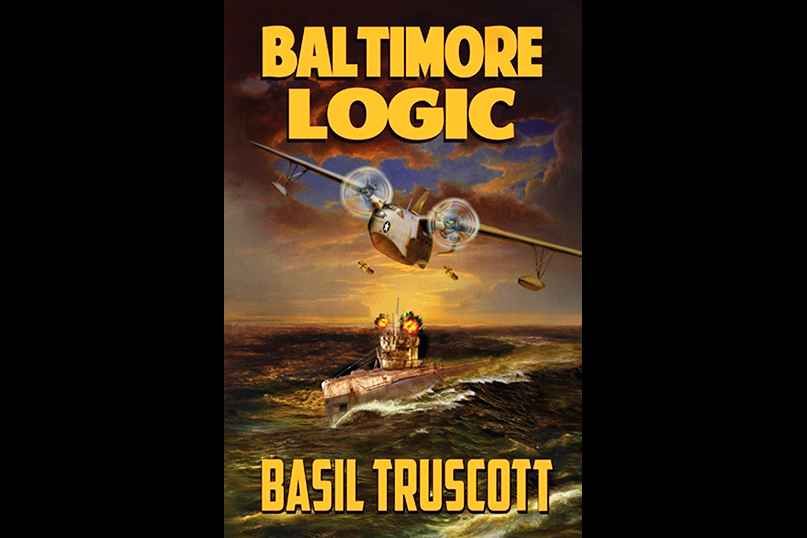
A Review by Donna Robinson Divine

Baltimore Logic is the debut novel of Basil Truscott. A resident of West Hartford since 1982, where he and his wife are longstanding active members of Beth El Temple, Truscott retired from teaching AP Economics at Farmington High School in 2015. Previously, he worked in the legal departments of two major American corporations. Currently, Truscott is conducting research on the sequel to Baltimore Logic.
In our post-truth age, where feelings count more than analysis, where policies are reduced to memes, and where a complicated history is boiled down into a series of freeze-dried hashtags, Baltimore Logic challenges a number of contemporary orthodoxies. It is as important a book for understanding the present as it is for learning about the past.
The starting point is the title. What kind of logic can be associated with Baltimore? Author Basil Truscott deconstructs the meaning of that logic at several points in this gripping story. A willingness to deploy force is sometimes the only means of fighting against people determined to destroy lives and dismantle the political and social order that sustains our national life. But a force exercised thoughtfully constantly mindful of unanticipated consequences is often evoked more effectively as threat than as punishment. And when an accidental death becomes an outcome of the exercise of state power, Baltimore Logic requires unfettered reckoning with mistakes in both strategy and tactics. What went wrong has to become an opportunity for getting it right the next time.
This is Truscott’s first novel and one might reasonably approach it with hesitation particularly because the title suggests it is filled with nostalgia for a Baltimore that may no longer exist. But the city in Baltimore Logic is more than the sum of its buildings and people; it is a spirit captured in a novel that is neither a sentimental reminiscence nor a neurotic retribution about a segregated city with its enclaves of first generation Americans trying to fulfill the dreams of parents whose ambitions for their children often came without the necessary guidance. The characters we meet in this story are people we know – shaped by their traditions, but also reared on the seeds of discord sown long before they were born. They learn quickly they must choose the values to define their own actions.
This long, detailed story of a race in 1939 for mastery over a military technology expected to determine the course of a war between Japan and its allies against the United States isn’t like anything else you have ever read. It contains the kind of details about international relations, radar technology, and warfare found only in the best of historical studies. It is an adventure story about networks of spies tripping over one another in a city with a port open to merchants from across the globe that also stood as a center of industrial power and near enough to the nation’s capital to wield significant political leverage.
Japan, not yet at war against the United States, understood America’s heart of darkness and sought to exploit it in order to gain access to the country’s innovative creativity. Because its diplomats knew that African Americans were asked to risk their lives in service of a nation that refused to treat them as full citizens, they also did not hesitate to exploit deep inequities in law and life to recruit their agents. Baltimore Logic thus becomes an argument over history and politics, and its strength is to show how the contradictions of an imperfect America can prove a source of inspiration and courage to people whose professionalism overcomes whatever barriers have been erected to deter them from doing their jobs. This is about a time when the FBI could work cooperatively with the Baltimore Police and naval intelligence; it is an era when Federal authority helped unleash industrial energy to provide the weaponry necessary to prepare for war; these are years when what America meant was not about a distilled version of its shameful past but more about its promises for a hopeful future. And thankfully for us in 2020, in the words of Basil Truscott, “that was that.”
Baltimore Logic by Basil Truscott, BookBaby, 2020, 498 Pages, Hardcover $45; Paperback $25; Kindle $9.49.
Donna Robinson Divine is Morningstar Family Professor of Jewish Studies and Professor of Government, Emerita at Smith College in Northampton, Massachusetts.







 Southern New England Jewish Ledger
Southern New England Jewish Ledger














